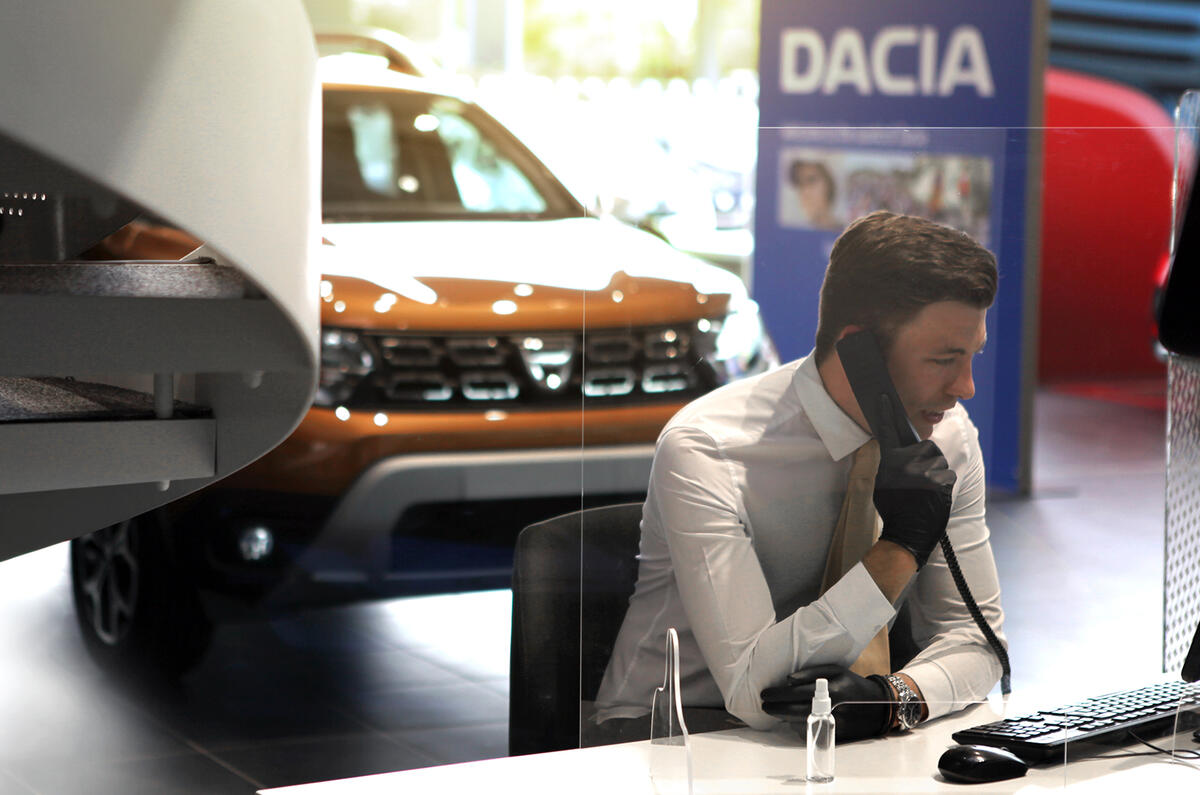Motorists' plan to replace their cars in the next six months are unchanged despite the Covid-19 crisis, according to new research.
This is positive news for the struggling new car market, which must ramp up sales after a dismal three months in order to get the larger cogs of the industry turning. The UK has taken the first tentative steps this week by opening dealerships, and early reports suggest slow but steady progress.
Vertu, the fifth-biggest retailer in the UK, sold 200 cars on 26 May – around 50% of a typical day after a bank holiday, according to CEO Robert Forrester.
“There’s uncertainty over demand going forward, but we expect the short term at least to be robust,” he said, “especially for cheaper used cars, due to pent-up demand and an aversion to public transport. We’re certainly on an upward trend.”
The new survey by research firm Simpson Carpenter shows 47% of car owners plan to replace their car in the next 12 months. That figure is fractionally up on a like-for-like survey undertaken in March, just before the lockdown began.
Of that 47%, 22% intend to buy within the next six months – the same as in March. This echoes research by our sister title What Car?.
Simpson Carpenter’s Tom Simpson said: “Buyers are ready to hit the showrooms again, although there will be a lag before they feel completely ready to go car shopping. And there is one significant caveat: things won’t return to anywhere near normal until buyers are convinced the coronavirus outbreak really is over.”
Almost 50% of new and used car buyers have delayed or plan to delay their purchase, but this figure has hardly changed from pre- to post-lockdown surveys, reflecting the broader car sales slowdown created by uncertainty over Brexit.
The key difference in the past few months is that the coronavirus has now become the main reason for delaying a purchase. In March, just 25% of people said concerns about the disease would delay them, but that leapt to 73% in May. Also, some 29% cited effects on their income, up from 13% in March.
Given the new pressures on income, it’s no surprise that lower running costs will be more appealing than ever post-pandemic. The research found that nearly one in four buyers – including 30% of premium car owners and 32% of those intending to buy within the next 12 months – are now more likely to seek out cars that promise reduced running costs.
READ MORE
The car industry now: Can Britain's niche brands survive?
BMW: Coronavirus will affect new car demand for rest of 2020
Aston Martin posts £119 million loss due to coronavirus impact




Join the debate
Add your comment
Rachel Burgess is neither a
Rachel Burgess is neither a mathematician, nor a sceptic.
Car Sales After Lockdown
To misquote Mandy Rice-Davis "Well they would say that wouldn't they" With this period of economic uncertainty I'd think that buying a new car is the last thing that punters are thinking about. More likely to be have I got a job to go back to and can I afford the lease payments on that car I bought before the crisis. I have a nasty feeling that there's going to be a glut of second hand cars returned to the the lease companies and to dealer's forecourts
To buy or not to buy.....what a dilemma!
My present PCP finishes in August, when I would normally be champing at the bit to buy another car but this year I can't be bothered. When my car was serviced in January the dealership did its tentative "have you thought about what you'll be doing about your car?", I said then I was undecided considering that even before the lockdown I struggle to exceed 3000 miles a year. My only reason for changing might be if I can sell my Swift to my nephew's girlfriend and I can use savings to buy outright. That could be why dealers are feeling confident, since interest rates for savings are falling through the floor and people might just want to enjoy their money.